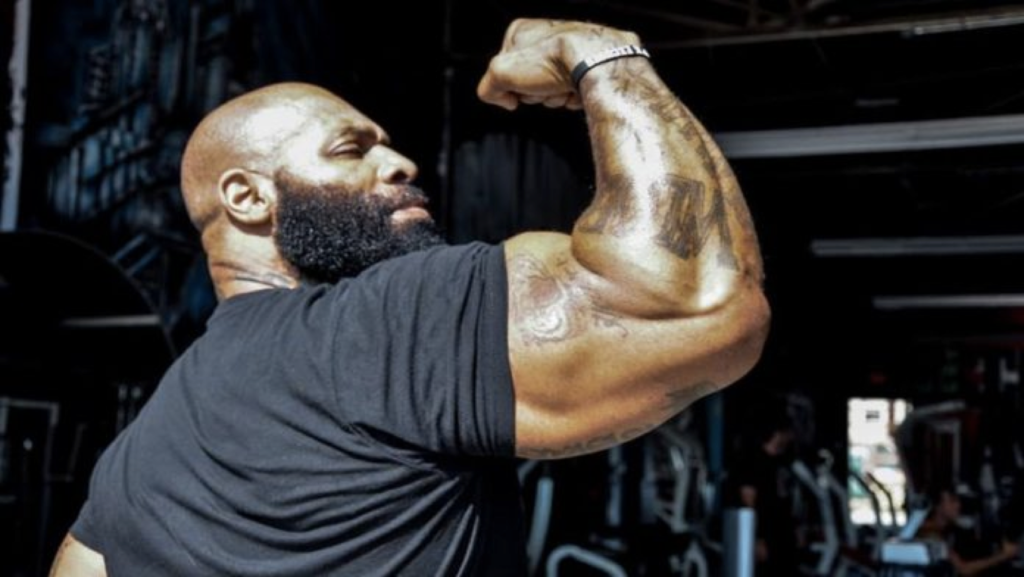
Fans, fitness trainers and the entire bodybuilding community were praying for the famous powerlifter and bodybuilding legend C.T. Fletcher. He suffered a major heart attack in June 2017 and was waiting for heart transplant heading back to the hospital for kidney tests and likely a transplant heart surgery.
But in May of 2018, fans got their prayers answered and Fletcher got the news he was waiting for: he finally got a heart donor and was overjoyed! Now the hard part had come: to see how his body would hold up during surgery and how the heart would react to his body after surgery.
But this wasn't his first open battle with heart issues.
"My first open heart surgery was in 2005, I flatlined 3x on the operating table. God had a plan for me then, and God willing, I know He has one for me now as I take on the heart transplant journey. As long as this ol' sidewalk kraka' is above ground, it's still most certainly my muthafuckin set!!! I'm blessed!!!"
CT's heart issues go far back into his family life and growing up.
Just one year after birth, Fletcher's parents moved the whole family to Watts, California and later they moved to Compton where he resided during his youth. He grew up with an abusive father who at the time was a preaching in a 4-car garage. When he began junior high, the moved to Lakewood, California, there his father invested in his own church.
In 1977, aged 18, he joined the U.S. Army. He was stationed in Germany. Soon after, he married his high school sweetheart and had children of their own. While stationed in Germany he became interested in martial arts. In 1979, he started to take Karate classes and earned a second-degree black belt. In 1980, he began weightlifting and bodybuilding.

At first he was interested in bodybuilding but then powerlifting caught his interest. During the early 1990s, his marriage ended. While working at the post office, he met a woman and in 1995 they had a child, Samson. In total, he and his wife have 7 children.
Due to his work schedule, he ate a lot of fast-food. This unhealthy diet caused him to become a frequent patient in hospitals, he developed hypertension because of this diet. At the time, he didn't seem to be affected but the doctors warned not to continue his bad habit. In 2001, he received a phone call from his doctor regarding his hypertension and how it can be life-threatening. His body had taken a major hit and he was disabled at age 42.
In 2004, he lost his mother, Ogie Rea Fletcher. She passed away from congestive heart failure. The following year, 2005, he was admitted to a hospital in Long Beach, Virginia from there he was transported to UCI Medical Center for open heart surgery. In 2013, he began vlogging on YouTube. In 2016, he opened his first gym, Iron Addicts Gym in Signal, California.

C.T. Fletcher inherited, from his mother's side of the family, a heart condition that has heavily impacted his life. His mother and all nine of her siblings have died from heart problems.
In his latest tweet CT said...
“If You Been Praying For The Old Man, Please Continue To Do So. I'm being admitted Monday for A Kidney Function Test, If I Pass, I Will Most Likely Stay There For My Transplant Surgery. Hopefully, It Won’t Be Much Longer. Lord Let Your Will Be Done.”
A heart transplant, or a cardiac transplant, is a surgical transplant procedure performed on patients with end-stage heart failure or severe coronary artery disease when other medical or surgical treatments have failed. As of 2016, the most common procedure is to take a functioning heart, with or without transplanting one or both lungs at the same time, from a recently deceased organ donor (brain death is the standard) and implanting it into the patient. The patient's own heart is either removed and replaced with the donor heart (orthotopic procedure) or, much less commonly, the recipient's diseased heart is left in place to support the donor heart (heterotopic, or "piggyback," transplant procedure).
Approximately 3500 heart transplants are performed every year in the world, more than half of which occur in the US. Post-operation survival periods average 15 years. Heart transplantation is not considered to be a cure for heart disease, but a life-saving treatment intended to improve the quality of life for recipients.








